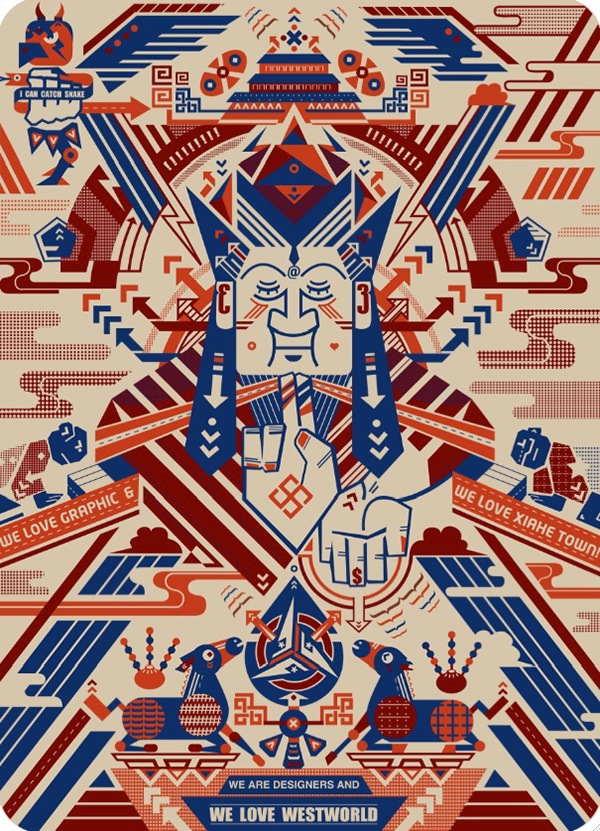In the expansive tapestry of spiritual traditions, the Bahá’í Faith emerges as a luminous thread, intricately woven with profound teachings and a vision of unity for humanity. Central to its narrative is Bahá’u’lláh, whose life and message resonate beyond mere historical significance; they forge an unparalleled connection with other religious paradigms, positioning him intriguingly as a possible “Future Buddha.” This metaphor invites a contemplation of the interrelation between the Bahá’í teachings and the essence of Buddhist philosophy, crafting a narrative that transcends cultural and doctrinal boundaries.
The nomenclature of “Future Buddha” evokes the prophecy of Maitreya in Buddhist tradition, wherein a forthcoming enlightened being is anticipated to restore the teachings of the Buddha in a world enveloped by moral decline. Similarly, Bahá’u’lláh is envisioned as the fulfillment of religious prophecy across various faiths, asserting that the divine guidance necessary for a progressive civilization has been renewed in his teachings. This assertion is not merely a theological position; it is an invitation to explore the subtleties of metaphysical dimensions and the evolution of human consciousness.
At the heart of Bahá’u’lláh’s teachings lies the concept of oneness — the oneness of God, the oneness of religion, and the oneness of humankind. This principle resonates with the Buddhist tenet of interdependence. Just as Buddhism posits that the self is an illusion and that all beings are interconnected, Bahá’í teachings illuminate the intrinsic unity of humanity. In a world characterized by disarray and discord, Bahá’u’lláh’s proclamation serves not only as a beacon of hope but also as a call to cultivate compassion, understanding, and an unwavering commitment to social equity.
From a literary perspective, the parables and narratives within Bahá’u’lláh’s writings possess a profound metaphorical richness that parallels the Jataka tales in Buddhism. These narratives embody moral lessons, fostering ethical conduct and spiritual growth. Through engaging stories — often infused with allegory — Bahá’u’lláh elucidates complex spiritual concepts, rendering them more accessible to the seekers of knowledge. Each teaching offers a glimpse into a new world, a new understanding of life’s purpose and the moral imperative to act justly.
The notion of “progressive revelation” further enhances the unique appeal of Bahá’í teachings. This doctrine posits that divine guidance is not static, but rather evolves over time, manifesting through various prophets, each addressing the specific needs of their communities. Just as the Buddha reinterpreted spiritual truths for a diverse audience, Bahá’u’lláh articulated truths for an emerging global civilization, recognizing the transformative potential of unity for peace and societal progress. Through this lens, Bahá’u’lláh may be perceived not only as a prophet but as a harbinger of a new era in human understanding — akin to the awaited Maitreya.
Moreover, Bahá’u’lláh’s emphasis on the harmony of science and religion echoes the Buddhist pursuit of understanding the nature of reality through both empirical inquiry and experiential insight. This convergence fosters a holistic worldview that encourages seekers to transcend dualities and embrace a comprehensive understanding of existence. The coherence between these ideals engenders a fertile ground for dialogue among adherents of different faiths, fostering a collaborative approach to the pressing challenges faced by contemporary society.
The manifestations of Bahá’u’lláh’s teachings can be observed in the Bahá’í approach to social issues, which seeks to address inequities through education, empowerment, and community building. This sociocultural activism harkens back to the Bodhisattva ideal in Buddhism, where the enlightened being endeavors to alleviate the suffering of all sentient beings. Bahá’í communities worldwide embody this ideal, engaging in initiatives that prioritize the welfare of individuals, irrespective of their background. Through service to humanity, they encapsulate a profound understanding that spiritual and social dimensions are inextricably linked.
Additionally, Bahá’í writings advocate for universal education as a means to eradicate ignorance — a revered concept in both Bahá’í and Buddhist teachings. Education is perceived as a transformative force, capable of elevating consciousness and hence contributing to personal and communal advancement. The belief that knowledge dispels prejudice resonates harmoniously with the Buddhist commitment to wisdom as a path to liberation.
In scrutinizing the life of Bahá’u’lláh, one finds an exemplary model of resilience. His transcendent spirit, even amidst adversity, reflects the Buddhist practice of equanimity — remaining undisturbed by the vicissitudes of life. By enduring imprisonment and exile, he encapsulated the essence of non-attachment and selflessness, qualities esteemed in both spiritual traditions. His journey symbolizes not merely personal trials but an embodiment of collective aspiration toward a harmonious global existence.
As we consider the interplay between Bahá’í teachings and those of Buddhism, it becomes apparent that both traditions offer a profound exploration of existence, inviting adherents to partake in the ongoing journey of spiritual awakening. The metaphor of Bahá’u’lláh as the “Future Buddha” serves to bridge the wisdom of the past with the aspirations of the present and future. It compels us to reflect on our role within this grand narrative — the story of humanity striving towards unity, peace, and an undying commitment to the betterment of all.
In conclusion, the legacy of Bahá’u’lláh is not one of isolation but of inclusion. His teachings resonate universally, reverberating across the corridors of time and space, inviting every individual to contribute to the flourishing of collective existence. As the story continues, let it unfold in the spirit of harmony and collaboration, heralding a future where the truths of varied traditions converge, illuminating the path forward in enlightened unity.
